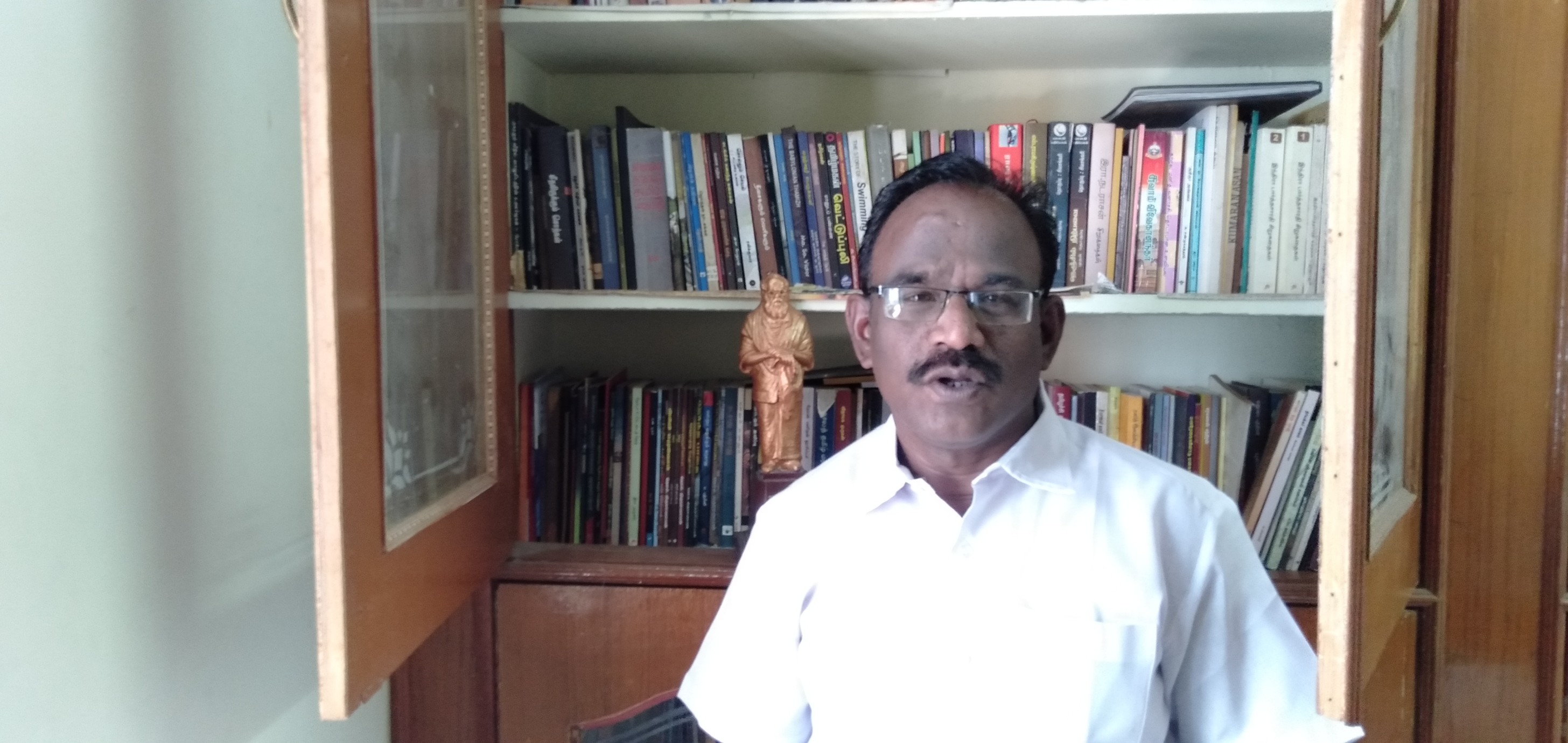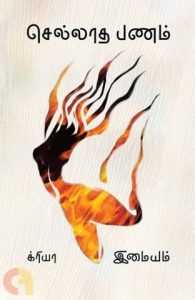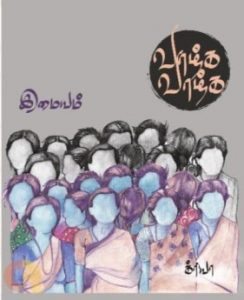
If you reject politics, you distance yourself from society: Writer Imayam
Tamil writer Imayam is busy discussing election updates with local DMK party functionaries and clarifying doubts in his latest manuscript with his publisher at the same time, when The Federal caught up with him at his house in Vridachalam, Cuddalore district one morning.

Tamil writer Imayam is busy discussing election updates with local DMK party functionaries and clarifying doubts in his latest manuscript with his publisher at the same time, when The Federal caught up with him at his house in Vridachalam, Cuddalore district one morning.
Born as V Annamalai in Cuddalore district, this author who juggles a job as a government schoolteacher in the district, has penned six novels, six short stories and a novella under the pseudonym Imayam. Recently, he won the prestigious Sahitya Akademi award for 2020, for his work Sellatha Panam (loosely translated as useless money).
But, Imayam is not ecstatic about winning the award. This is largely because he finds it painful that whenever he receives an award the literary and media world immediately slots him under the Dalit label.
“People are celebrating that the Sahitya Akademi award is being given to Dalit writers, for the second time in a row (Cho Dharman won the award in 2019). They are not saying that the award has been given to deserving writers. Instead, they bring in the caste angle and call us Dalit writers. I don’t know when this will change,” he observed with sadness. According to him. critics call him Dalit because they were casteist.
Also read: TN writers divided over following West Bengal’s Dalit Sahitya Akademi idea
Published in 2018, Sellatha Panam tells the story of a woman who marries a man from outside the community against her family’s wishes, and self-immolates herself. The story set in JIPMER hospital in Puducherry throws light on how the ‘burn wards’ work and the kind of mental agony the victims and their relatives undergo. Imayam’s narrative style makes the story realistic.
“There is data which says that in Tamil Nadu, there are about 10 to 20 women who set themselves on fire every day to commit suicide. I have come across such incidents and that’s what I have written about. I take stories from real life and the society I live in,” he said.

Questioned on why most women choose to commit suicide through self-immolation, Imayam replied, “Our patriarchal society has assigned women to the kitchen and these cooking hearths carry many untold stories. When women are constantly oppressed, they choose to die by turning to whatever options they have easy access to. In most cases, they have easy access to kerosene and fire.”
Chronicling current politics in literature
Though this book is being noticed after the award announcement, it is his most recent book Vaazhga Vaazhga however that is hogging the limelight today with state Assembly elections around the corner.
Also read: ‘AIADMK in power, but shots called from Delhi,’ says Kanimozhi targeting BJP
The 100-odd page novella Vaazhga Vaazhga published by Chennai-based Cre-A, is a contemporary political story dealing with two Dravidian parties and focusses on the loss of innocent lives at political events. And, in his inimitable style, he vividly portrays the fake power that party functionaries exercise to organise crowds to show off their strength in these meetings. Renowned for bringing a subtle undertone of prevailing political nuances in all his works, this book is being widely read.
Imayam is also famous for being able to capture the “everydayness” of life. It is a tradition in Tamil Nadu that every political party in the state bring crowds from villages by bribing them with money (in most cases ₹500), party colour sarees, biryani and booze. There would be competitions among district secretaries of a party on who can round up the largest gathering. Parties and politicians believe that large crowds prove that they have the people’s support. The crowds are usually brought in vans and lorries, and government buses in case of ruling party’s meetings.

In Vaazhga Vaazhga, Imayam has shown how the women are affected when they are carted off to these meetings. He effectively captures the mood at these rallies – the way the women fight among themselves for chairs using cuss words and casteist slurs and the agony they go through with no toilets for women in the vicinity. And, there are mothers in the crowd complaining about their sons who have joined these political parties, which make them spend from their own pockets and do not give them any opportunity to steal party funds.
“I have my own experience in bringing such crowds for meetings. It doesn’t mean that the people have no work and rush to attend these meetings. But, these meetings are considered as a kind of celebration and a form of entertainment,” said Imayam, who is known in the literary world as a DMK supporter.
Imayam is the second writer in the Dravidian movement tradition, after poet Bharathidasan (posthumously) to be awarded the Sahitya Akademi. Being a DMK supporter for many years, Imayam recently registered himself as a party member.
He is candid about his support for the DMK. Imayam has been a supporter of the Dravidian movement from 1977, he revealed.
“I chose to be with Dravidian movement because it is this movement that works for social justice. DMK is the only party that carries forward the legacy of Dravidian ideology. The AIADMK cannot be considered as a part of this movement. Though I have come out in the open and registered myself as a party member, I don’t have any position in the party. That’s why I am able to criticise both DMK and AIADMK in this book,” he said.
Is he not worried that his open affiliation with a political party may ruin his writing career in the future?
Imayam replied, “What’s going to happen? They won’t give me awards. So what? I am not writing aiming at awards. Or, for that matter, I won’t stop writing about politics in my works. There are many writers who steer clear of politics and just write literary works. If you reject politics, it means you are distancing yourself from the society. So, writing about society, is really writing about politics and vice-versa. A good literary work cannot differentiate between politics and society.”

